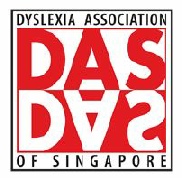

© Dyslexia-Research.com - Dr Neil Alexander-Passe - Contact at: neilpasse@aol.com
Dyslexia-Research.Com - The home of humanistic dyslexia research
Asia Pacific Journal of Developmental Differences
Vol. 2, No. 1, January 2015, pp 89-111
DOI: 10.3850/S234573411500023X
Abstract
This paper reports on a reflective qualitative/quantitative study of 29 adult dyslexics and their perceptions of success. It compares depressive (N=22) to non-depressive dyslexics (N=7), with gender, age of diagnosis and academic success variables. Interpretive Phenomenology Analysis was used to investigate dyslexia and perceptions of success. The study uses both quantitative and qualitative data to understand how dyslexic adults perceive any life success, and whilst many were degree educated, this was not seen by many as enough to herald themselves as successful. Many talked about reaching one’s potential, but this was seen as a personal goal-setting exercise, with those who felt themselves as unsuccessful creating unrealistic goals. Whilst many were seen by others as successful, again they dismissed this and denied themselves such attributes.
From the quantitative data, overall the whole sample felt more successful than unsuccessful (65.4% to 30.8%). Males felt more unsuccessful (45.5% to 36.4%), but females felt significantly more successful (72.2% to 16.7%). The secondary questions gave a number of reasons for this: compared to females, males felt rejected by peers, felt inadequate, frustrated and self-blamed, with the strongest differences in terms of feelings of inadequacy in over 50% of both the depressed and non-depressed males.


| About the Author |
| Academic CV |
| Teaching CV |
| Research for the book |
| Reviews for the book |
| The Successful Dyslexic Book |
| How can parents support their child with dyslexia? |
| Dyslexia, self-harm and attempted suicide |
| The Lifelong social and emotional effects of Dyslexia |
| Dyslexia and Depression |
| Dyslexia: Dating, Marriage & Parenthood |
| Dyslexia and Creativity |
| Dyslexia and Mental Health-differing perspectives |
| Dyslexia & Mental Health |
| Surving School as a Teenage Dyslexic |